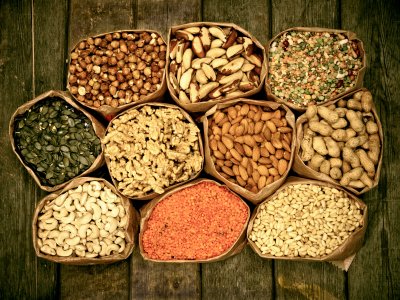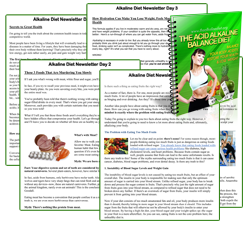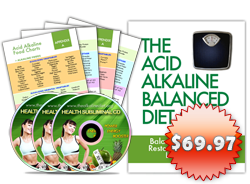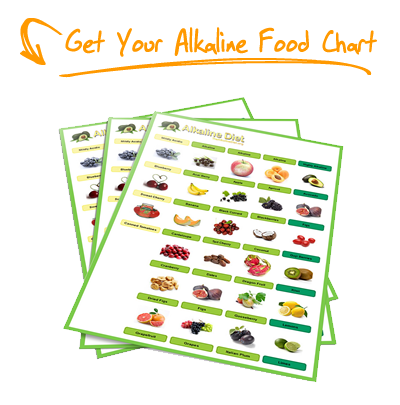Nuts And Seeds – Health Facts & Misconception
Posted on 10. Aug, 2010 by Staff Writer Candy Del Carmen in Alkaline Diet Tips, Blog
 Nuts and seeds are now considered essential in diet. Some people are asking of what is the difference between a nut and a seed. Basically, some nuts are seeds and they are called legumes. For example, a plant producing nutshell, the fruit is no other than the nutshell and the nut is considered the seed.
Nuts and seeds are now considered essential in diet. Some people are asking of what is the difference between a nut and a seed. Basically, some nuts are seeds and they are called legumes. For example, a plant producing nutshell, the fruit is no other than the nutshell and the nut is considered the seed.
Furthermore, to define each term, nuts are the hard-shelled fruits plants and characterized by the stony fruit wall that is a composite of the fruit and the seed. Seeds, on the other hand, are the small plant enclosed in the seed coat. Nevertheless, both nuts and seeds become crucial part of human diet because these are great sources of important nutrients. To give the significance and their own distinction, this article will bring out the best in each of their characteristics and features.
NUTS
Types of nuts: almonds, cashews, chestnuts, coconuts, hazels, macadamia, peanuts, pecans, pine nuts, pistachios, and walnuts.
Nuts are seeds of trees or dried fruit from trees that that are covered with hard shell. Nuts may also come from different plant groups, and therefore nutritional content may be varied too. Known to many people, nuts are the best source of protein. The Food and Drug Authority approved and recommended 7 types of nuts that can provide heart benefits namely almonds, peanuts, hazelnuts, pecans, pine nuts, pistachios, and walnuts. These nuts contain 4g of saturated fat per 50g serving.
Nutritional Facts: It is considered as “nutrient-dense” because nuts are rich in vitamin A, vitamin E, minerals like potassium and phosphorus, and fiber. Nuts are also loaded in carbohydrate and oils. Furthermore, flavonoid compounds are found in nuts which are rich in antioxidant that help reducing the formation of toxins and free radicals in the body. The flavonoid is also responsible for premature aging, cardiovascular diseases, and cancer.
Common misconception: The negative connotation about nut is that it may be bad for health because of the common belief that it belongs to fatty food. Well, technically speaking, nuts are high in fat content. Nevertheless, nuts are plant sterols consist of monounsaturated and polyunsaturated fats with essential omega 3 fatty acids. Meaning to say, unlike saturated fats that can totally increase the risk of heart attack, nuts are good fats that can lower LDL or bad cholesterol.
Researches revealed that people who regularly consume nuts have lower risk of cardiovascular disease. The Iowa Women’s Healthy Study found that women who include nuts at least 4 times a week on their daily diet are 40% less likely reduce the risk of heart attack. Almost same conclusive results in a study conducted by Harvard School of Public Health to group of women participants. Of course, the health benefits are not only exclusive to women because in 2002 research of Physician’s Health Study wherein male are the participants, those men who consumed nuts regularly like 2 or more times per week had reduced the risks of heart attack.
Nuts are Brain Food
We commonly hear “nuts are food for the brain”, but how true is this saying? Let us profound explanation by taking into consideration some researches on how nuts can be brain enhancer. In a study found in nuts, seeds, and olive oil, the vitamin E component of these super foods can ward off dementia. The Swedish researchers measured the amount of vitamin E in blood samples of 232 men and women, aged 80 years and older, and free of dementia. After six years of study, 57 among those participants had developed Alzheimer’s disease. Although the results are believed to have several factors that may cause Alzheimer’s, Dr.Francesca Mangialasche of Stockholm’s Karolinska Institute hypothesized the all vitamin E family members are essential in protecting against Alzheimer’s disease. Researchers reiterated that their findings are needed to be confirmed through further research.
Ways to eat nuts: Nuts can be eaten in various ways either fresh, with or without shell, cooked, or roasted. Also, nuts are available in various forms like salted, unsalted, whole, or chopped. Due to its fat content, store nuts in cool, dry condition, and closed container away from the light to deter rancidity. Another rule of the thumb is moderation. Limit nuts and seeds intake to 1-2 oz of unsalted nuts daily. It is a fact that any fat content is also corresponding to high calories, but if consumed with moderation, nuts and seeds can be part of the usual healthy diet.
Precaution: There are people who develop allergies in nuts. The common symptoms of allergy are itching, nasal congestion, wheezing, upset stomach, nausea, heartburn, diarrhea, and fainting. These symptoms from suspected food allergy must be consulted in a professional doctor so that a medicine can be prescribed.
SEEDS
Types of seeds – Seeds are divided into 2 categories i.e. cereal and edible seeds.
Cereal Seeds: maize, wheat, rice, bran, etc
Edible seeds: pumpkin, sesame, sunflower, flax seeds, bean seeds, rapeseed, mung, clover, etc.
Seeds are unseen and covering the earth. Some seeds may lay dormant for so many years before they produce plant. You will be lost in counting if you will classify seeds according to its type. But what is most amazing of all, seeds can offer several benefits to humankind for most part of seeds are edible to eat. These underrated seeds are not only considered as valuable food source, but they are also source of commercial oil that is utilized in various ways. Therefore, no matter which category a seed may fall, healthy and edible seeds can give maximum health benefits.
Nutritional Value: health benefits may vary on the type of seeds. Like for instance, sunflower seeds are loaded of vitamins and minerals like unsaturated fats, protein, fiber, lignans, vitamin E, selenium, copper, folate, zinc, iron and phytochemicals. Pumpkin seeds are known to its beta carotene that converts to Vitamin A, rich in antioxidants, source of magnesium, bursting with vitamin B complex, packed with protein, plant source of iron, and fiber. While flax seeds are abundant in omega 3-fatty acids, dietary fiber, manganese, folate, copper, phosphorus, and vitamin B6.
Seeds may vary on the nutritional value, but the fact remains that edible seeds are really beneficial to human.
Health Benefits of Seeds: Again, each seeds offer various health benefits. Like for instance, sesame seeds which are rich in vitamin E can protect against cardiovascular diseases. The lignans component of sunflower seeds can also play significant role in cognitive and memory function. Moreover, as for the pumpkin seeds, these are natural source of carbohydrates, unsaturated fatty acids, and amino acids. The pumpkin seeds oil is prominent in clinical studies that have the potential from inflicting damage on prostate cells. Another health benefits it can offer are: stop the formation of kidney stones, treat learning disorders, can regulate good cholesterol levels, and can treat tapeworms. Last example given is the flax seed. Like any other nuts and seeds, the omega 3 essential fatty acids in flax seeds are heart friendly promoting heart-healthy benefits. According to researchers from University of Toronto, flax seeds can be potential cure to reduce the risks of certain cancers, lung diseases and cardiovascular diseases.
Ways to eat seeds: seeds can be sprinkled over cereals, mixed with fresh green vegetables, consumed as desserts or snacks. Other people find it more sumptuous to eat roasted seeds. Seed oil has shelf like and with this regard, this ahs to be kept in dark bottles to maintain the quality and health effects.
Precaution: Cases of seed allergy are rising in some countries, including United States. Overeating of seeds can cause severe allergic reactions which some people may not be aware of the symptoms. The Food Allergen Labeling and Consumer Protection Act require all the manufacturers to be clear on the ingredient labels for the benefits of all the consumers. It is reported that sesame food allergy may have the simple symptom of mild and itchy rashes. Again, always consult a doctor if this symptom persists.
To sum it up, nuts and seeds, with their own characteristics and nutritional benefits are really essential to be part of our daily diet. Gone are the days that we just perceive these as snacks or appetizers. We have to change our perspective toward health and wellness wherein moderation also takes place. Nuts and seeds may not only foods for the brain, but rather; these can also serve as super foods for the heart.





Recent Comments